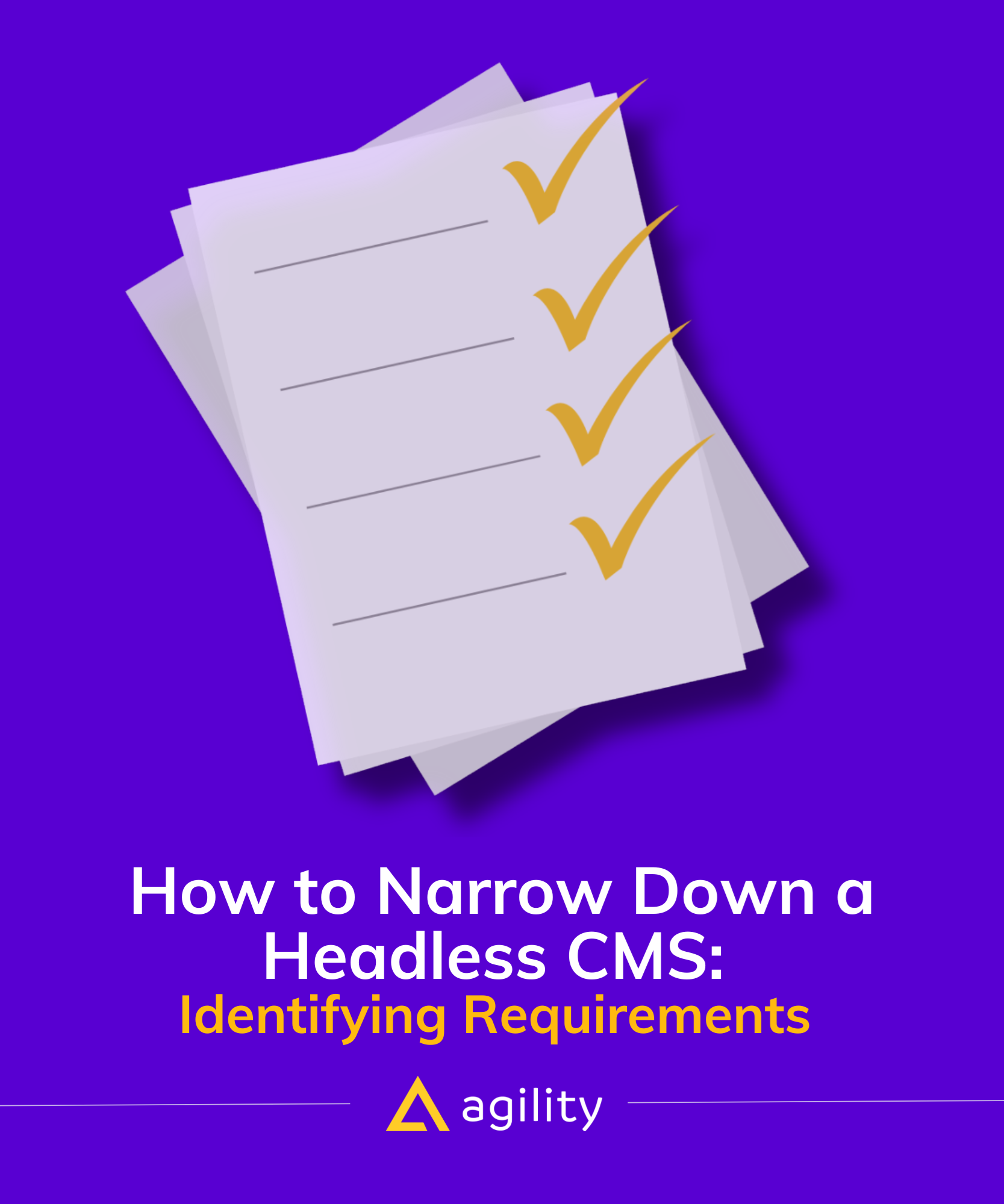How to Choose the Right CMS: Identifying Requirements
"This guide saved days and days of work during our RFP process and gave me confidence to go ahead with the vendor that fully met our needs. Great guide!" CMO, Educational Institution

Are you finding it challenging to navigate through the vast landscape of Content Management Systems (CMS)? Welcome to our comprehensive guide on narrowing down CMS requirements tailored to your team's unique needs.
Narrowing Down CMS Requirements
Don't embark on your CMS selection journey blindly. Our vendor-agnostic guide serves as a strategic starting point, enabling you to precisely discern your organization's specific needs. By aligning your team's objectives and expectations, you're set to make an informed choice that propels your digital endeavors.
Our guide equips you with a comprehensive set of thought-provoking questions to spark a discussion within your team, ensuring everyone is on the same page and primed to make impactful decisions.
What's Included:
- An Introduction to Headless CMS; what is it and why should you care?
- Your first considerations when narrowing down CMS vendors
- Top considerations including; budget, speed/scalability, infrastructure, security, content management, extensibility and support
- The industry leading Headless CMS vendors and links to full comparison resource
Your First Considerations
What is the purpose of your website or app?
Think of the purpose of your digital system, is it intended as a long-term business website/app, or are you building it for a short-term project?
Short-Term:
- In short-term projects, speed of development is often a priority. Choose a headless CMS that allows for quick setup and deployment, minimizing development time.
- If the project has a limited lifespan, cost-effectiveness becomes more critical. Consider open-source or low-cost headless CMS options that meet your immediate needs without incurring unnecessary expenses.
- For short-term projects, you may not want to spend extensive time training team members. Select for a headless CMS with an intuitive user interface and minimal learning curve.
Long-Term:
- If you're building a website or app for a long-term business, scalability becomes crucial; look for a CMS that can handle a growing amount of content, users, and features.
- Long-term projects often require flexibility in content structure and presentation. A headless CMS that allows you to easily customize content models, adapt to changing business needs, and integrate with various technologies is essential.
- For a business, content governance is important. Look for a headless CMS that supports content versioning, workflow management, and role-based access control to ensure a smooth and controlled content creation and publishing process.
What are your performance/ integration needs?
- Some headless CMS platforms excel in scalability, low response times, and robust caching mechanisms, making them suitable for projects with dynamic content and heavy traffic. Others prioritize flexibility in APIs and seamless integration capabilities, catering to diverse third-party services and fostering real-time updates through webhooks or event-driven architectures.
- Recognizing the distinctions among headless CMS offerings allows for a tailored choice based on your project's specific requirements and objectives.
Why do you need a Headless CMS?
By pinpointing your specific pain points, you can prioritize features that directly address your challenges and make a more informed decision when selecting a headless CMS that aligns with your content management needs.
What are your internal resource capabilities?
If you have in-house developers, keeping them in the decision-making process will be a way to ensure that whatever headless CMS platform you choose uses programming languages that your developers are familiar with.
